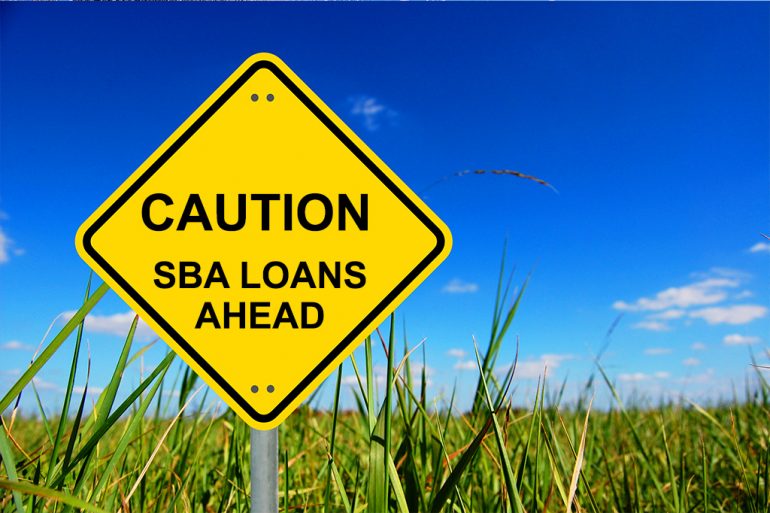Watch Out for SBA Mortgages in County Foreclosure and Tax Deed Auctions!
In 1953, the federal government established the Small Business Administration (SBA) with the goal of supporting small businesses across America. The SBA does not make loans directly to business owners except through the Disaster Relief Loan Program and PRIME program; instead, it partners with banks and credit unions to encourage lending to small businesses. The SBA guarantees these loans for private lenders. It’s like VA-, FHA-, or USDA-backed financing, but for business loans.
Small businesses that wish to expand usually acquire real estate. That means property buyers are bound to find SBA loans in the chain of title for commercial property that is being foreclosed on by superior mortgages or foreclosed for non-payment of property taxes. And, because many small business owners’ greatest asset is their home, you will also find SBA loans in junior positions on the chain of title for residential property used as collateral for small business loans.
If an SBA loan turns up during your due diligence, what does that mean for you? There are a few important things to keep in mind:
- The United States has a one-year redemption period after the sale of foreclosure and tax deed properties previously used as collateral on an SBA loan
- While the SBA can redeem properties, they will likely agree to a release if there is not enough equity to satisfy a superior mortgage as well as their own
It’s not all black and white, however. Keep reading for more on why SBA loans work this way and what it means for you.
Where Do SBA Mortgages Fall on the Priority Ladder?
The priority of these federal mortgages is largely debated. State statutes, such as Florida’s notice recording statute, declare that liens recorded after other liens are junior in priority. This conflicts with the Supremacy Clause of the United States Constitution, which clearly states the following.
“This Constitution, and the Laws of the United States which shall be made in Pursuance thereof; and all Treaties made, or which shall be made, under the Authority of the United States, shall be the supreme Law of the Land.”
You’ve got the federal government saying federal laws (and therefore instruments created pursuant to federal laws) are superior and the Florida government saying taxes applied in accordance with state laws are superior.
Which is it? Is the SBA mortgage superior to a tax deed? Is it superior to a previously recorded mortgage that is foreclosing? In Sherman v. United States, the 5th Circuit Court of Appeals concluded that 15 U.S.C. § 646 (which governs the SBA) replaced conflicting federal laws that appeared to give the SBA mortgages priority over state liens. In layman’s terms, SBA loans do not get automatic superiority over state liens.
15 U.S.C. § 646 says that SBA loans are usually superior. However,
in the case of state taxes, the federal government has declared that SBA loans are inferior to state tax liens so long as the state has declared those liens superior. This is the case in Florida in respect to tax deeds.
Smart Property Buyers Prepare for the Intricacies of SBA Mortgages
If the clerk fails to send certified mail notice of the upcoming tax deed sale to the SBA, I strongly discourage you from bidding at that sale. If the SBA is sent notice of the sale, you can request a discharge or release of the mortgage from the secretary of the SBA—the SBA is likely to agree to a release if there isn’t enough equity to satisfy both a superior mortgage and their own. You can also file an action to quiet the title as soon as you have the tax deed and name the SBA as a defendant
.
Ideally, after formally serving the SBA with the lawsuit, they will file a disclaimer of interest to the property. They generally do within 30-45 days. You would then record a certified copy of the disclaimer or release in the official records of the county where the property is located.
What happens to an SBA mortgage in a traditional purchase money mortgage foreclosure? It depends.
A straight SBA 504 loan, made by a business to acquire business property, generally declares itself inferior to the private purchase money lender. But that superior lender needs to make sure that it has sent to the Certified Development Company and the SBA:
- Written notice of the borrower’s default (within 30 days after the event of default)
- 60 days’ notice of foreclosure upon the mortgaged property
Without these prerequisites, the SBA can seek to undo a certificate of title issued at a foreclosure sale, making the certificate of title uninsurable.
In the case of residential property that was used as collateral for an SBA loan and for SBA 504 loans (whether it is a mortgage foreclosure or a tax deed sale), the United States has a one-year right of redemption from the date of sale. In this situation, you should reach out to the SBA to issue a release or plan to hold and rent the property for a year in case the SBA decides to redeem the property and secure their lien.
What if the SBA decides to redeem the property? What do you get in return? The redemption sum the SBA pays is the sum of the actual amount the buyer paid at the sale, plus 6% interest a year, plus costs resulting from protecting the property, less income from the property. A reasonable rental value will be determined by the SBA to reduce the expenses an investor would be refunded.
Don’t Underestimate the Impact of SBA Loans
The complexity of the interaction of federal statutes and the hoops the federal government requires to discharge its liens can intimidate even the most seasoned of real estate investors.
When a title report shows that there is an SBA loan on the property you want to bid on, consulting with an experienced title real estate attorney can save you from losing hundreds of thousands of dollars—as well as your sanity. And when you succeed, the federal purse will thank you for your contribution.








